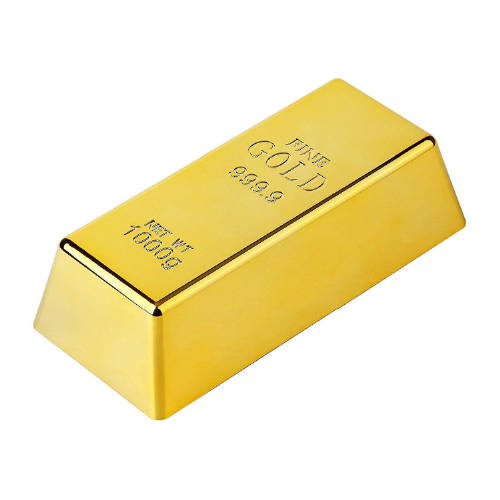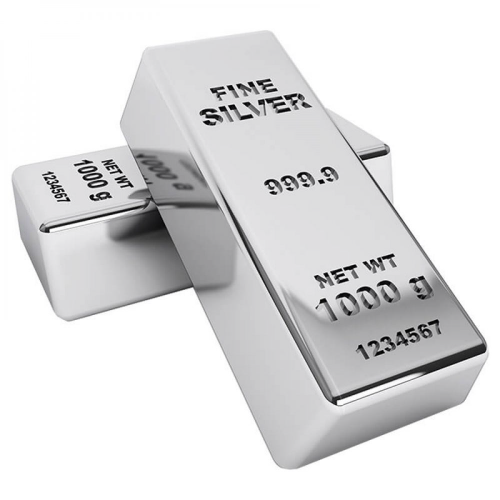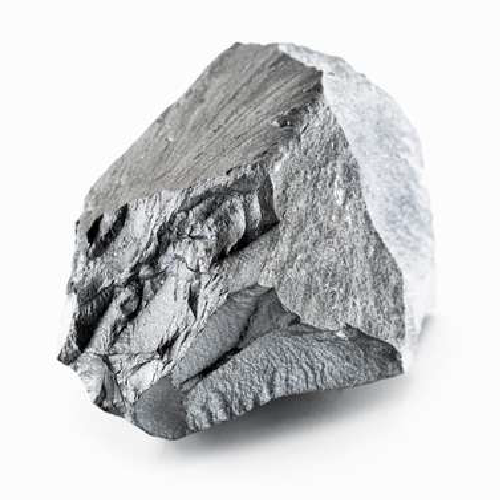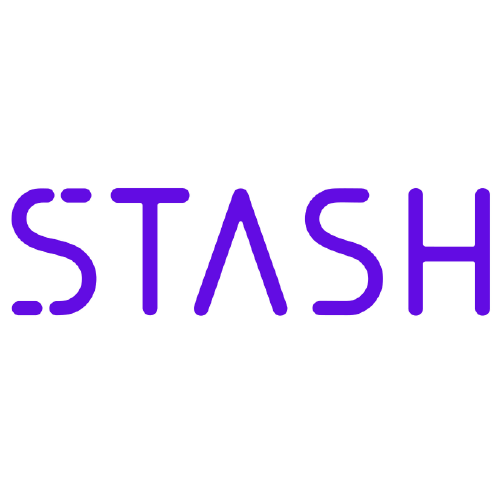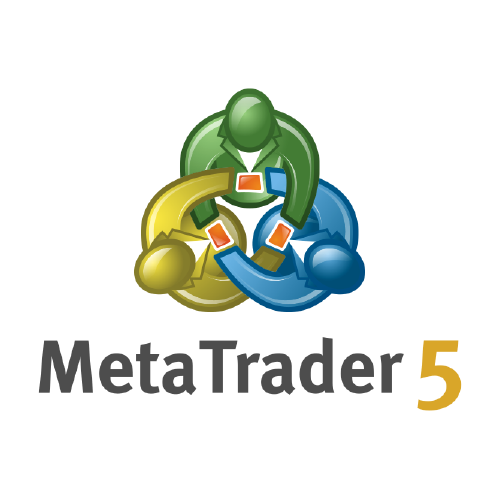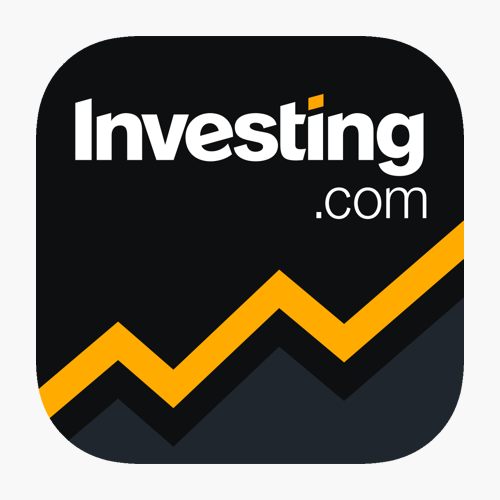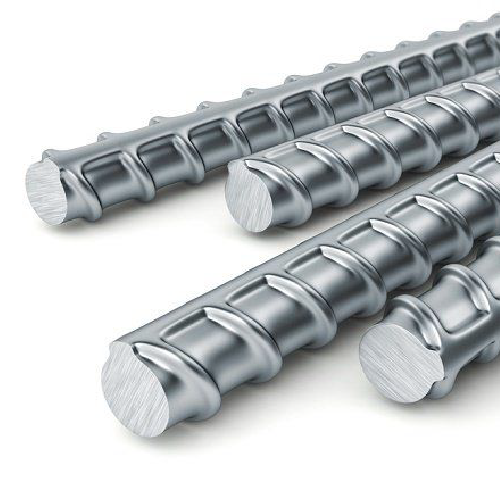
How to Invest in Real Estate Investment Trusts (REITs)
- Key Types of REIT
- REIT Trading Status
- Five Types of REITs
- Advantages of REITs
- Disadvantages of REITs
- How Do You Start Investing in REITs?
- Key Points to Consider When Investing in REITs
- Do Your Research
- Start with Mutual-Funds or ETFS
- Use the Right Companies
- Use the Correct Assessment Tools
- Invest in Quality
- Final Thoughts
REITs are investment companies that own income-producing real estate. These can include:
- Apartments
- Hotels
- Malls
- Self-storage facilities
- Warehouses
- Medical facilities
Congress created REITs in 1960 so individual investors could invest in commercial real estate without having to buy and manage it themselves.
The most reliable REITs pay large and growing dividends.
However, they must meet specific IRS standards. They should:
- Pay a minimum of 90% per year of their taxable income as shareholder dividends
- Invest at least 75% of their total assets in real estate or keep them as cash
- Receive a minimum of 75% of their gross income from real estate
- Have a minimum of 100 shareholders after their first year of operating
- Have no more than 50% of their sharesheld by five or fewer individuals during the final half of the taxable year
By keeping to these standards, REITs do not have to pay tax at a corporate level. This allows them to finance real estate cheaper, allowing them to grow and pay more significant dividends.
Key Types of REIT
REIT Trading Status
REITs can be both traded publicly and privately and non-traded.
REITs can be traded publicly. Their shares are traded on an exchange the same as stocks and exchange traded funds (ETFs) and are available using traditional brokerage accounts.
The National Association of Real Estate Investment Trusts (NAREIT) states there are over 200 publicly-traded REITs on the stock exchange so you have plenty of options.
REITs can also be privately traded. These are unlisted, hard to value and hard to trade.
They are less attractive as they are exempt from SEC regulations, so there are fewer disclosure agreements. However, with higher risk comes greater reward.
REITs can also be non-traded. These REITs are registered with the US Securities and Exchange Commission (SEC) but are not available on an exchange.
Instead, they are purchased from a broker.
Publicly non-traded REITs are highly illiquid (not readily converted into cash for eight years or more) and are hard to value.
The SEC warns that REITs do not estimate their value to investors until 18 months after the offer closes; in some cases, this could take years.
Public non-traded and private traded REITs come with steeper fees and a higher account minimum – usually around $25,000.
They are only open to accredited investors with a net worth of at least $1 million, or a two-year annual income of $200,000 (single) or $300,000 (married).
Five Types of REITs
Retail REITs account for approximately 24% of REIT investments.
Money is generated from the rents charged to store owners.
Before investing, research the property and assess footfall, turnover and store owner reliability.
You do not want to invest in a mall with low footfall and empty shop units.
Retail may seem like a sure investment, but it is highly dependent on the economy. As more people embrace online shopping, the value of a mall falls.
Residential REITs are concerned with rental apartment buildings and manufactured housing.
If you are thinking of investing in residential REITs, look for areas with high job growth and population. You want to invest in an area with young professionals, usually a mobile population, who prefer to rent or have no other option.
You might also want to consider the development and gentrification of the surrounding areas and the impact it will have on your rent.
Areas that are soon to be developed or that are being gentrified will likely see a rent increase.
Healthcare
Healthcare REITs are an exciting subsector to watch as healthcare costs are climbing. We live longer, and we are paying more attention to our health.
Healthcare REITs include:
- Hospitals
- Medical centers
- Nursing facilities
- Retirement homes
When investing in healthcare, diversification is key. You want a variation of locations with a variety of customers.
You should also consider companies with healthcare experience and low-cost capital.
Office
These are long-term investments, as tenants usually expect to stay in their office for the foreseeable future.
Invest in REITs located in steady economic areas such as Washington DC, rather than new hotspots without a proven track record.
As more employees look to improve their work-life balance, the concept of co-working spaces is increasing.
Consider buildings that offer this service, as well as traditional office spaces.
Do also consider the effect the rising remote working trend could have on your office investments.
Mortgage
With mortgage REITs, you do not invest in the property itself, but the mortgage someone needs to buy the property.
Mortgage REITs depend heavily on interest prices. The higher the interest rate, the lower your dividend.
Finding a mortgage REIT that operates in a low-interest-rate environment is possible but very difficult.
Before committing to any mortgage REIT, do extensive research on the company and the deal involved.
The Best Trading Platforms
Let’s take a look at the best trading to earn more.
1. Liteforex
Best for: Learning from others
Liteforex is one of the most popular online reliable brokers over the world. Over the past 15 years, it has developed a strong reputation for beginners and experienced investors alike, has a minimum $100 deposit.
The Liteforex app aims to use easy for every clients. It is available on Google Play and the App Store and allows you to move seamlessly between devices.
It’s innovative features include:
- Pre-programmed one-click trading
- Copy Trader – Copy the trades of others in real-time
- Its own social networking platform
- Pre provided investment strategies which they call Copy Portfolios
The app boasts the ability to allow you to place online trades even if the trading platform is down.
The information is being presented without consideration of the investment objectives, risk tolerance, or financial circumstances of any specific investor and might not be suitable for all investors.
2. FXTM
The FXTM Platform itself is intuitive and easy to use, suitable for those just getting into trading and those more experienced alike.
It is designed to offer a full replication of an institutional trading environment including depth of market.
With advanced risk management and order functionality, this is a detailed platform for trading stocks.
The FXTM app offers a premium range of order types, with advanced technical analysis tools.
You can set up push and email notifications for the important things that you want to know in relation to your stock trading needs – such as price alerts and trade statistics.
Within the app, you can:
- Complete a range of order types
- Work with all your accounts in one app
- Understand detailed trade analysis
- Review detailed order tickets – base currency dollar value and pip distance
As a platform, there are comprehensive educational videos and explanations of symbols, so you can find optimized processing for expert advisors and indicators.
The information is being presented without consideration of the investment objectives, risk tolerance, or financial circumstances of any specific investor and might not be suitable for all investors.
3. FBS
Best for: CFDs
This app is designed for those wanting to trade outside of the US. It is considered one of the best for CFDs on shares and has a minimum $100 deposit.
There are low trading fees but considerable fees for inactive users.
The educational section is average, as are the research tools. However, the app is easy to use overall.
This app is recommended for those familiar with CFDs and who are actively trading. Reviews of the app show that users like the:
- Account-opening process
- Deposit and withdrawal features
- Customer service
- Actual trading platform
The information is being presented without consideration of the investment objectives, risk tolerance, or financial circumstances of any specific investor and might not be suitable for all investors.

Advantages of REITs
As with any investment, there are pros and cons.
For REITs, the advantages are:
- There are guaranteed dividends – The law requires investment companies to pay out at least 90% of their income in dividends, meaning you will always receive a financial payout.
- Easy way to own real estate – They are packaged into shares and easily purchased or sold. Mutual funds and ETFs allow you to diversify by purchasing many individual REITs without doing the work to find them yourself.
- Passive with low minimums – You do not need a large sum of money to start investing. As the investment means you do not actually own the property, you are not tasked with any maintenance or landlord duties. You can continue with your typical working day and wait for the dividends to come through.
- Liquidity – As you do not own the physical building, it is easier for you to sell your investment as there is no hassle of assessments or viewings.
- Less volatile – REITs are less volatile than other stocks. This allows for a more diverse portfolio. Historically, REITs have outperformed other investment types in high-interest-rate environments and slow economies.
Disadvantages of REITs
- Limited growth – The 90% law means that companies do not have the funds to grow as much, or be as diverse, as they would like.
- Property values – Property is known for its changing habits. Some years see periods of steady growth and others, massive slumps. Carefully consider the location and type of investment. You want your investments to withstand recessions.
- Ordinary tax status – Aim to invest in tax-deferred accounts such as an IRA to keep tax at a minimum. REITs are taxed according to standard income rates rather than trading rates.
- Fees – Most REIT fees are taken upfront but can set you back around 30% of the REIT value. This could take a considerable chunk out of your investment fund, and it may be a while before you break even.
How Do You Start Investing in REITs?
Investing in REITs follows the same process as any other stock or investment. You simply open an online brokerage account and trade as you would any other stock.
To get started, consider looking at one of the following:
- Fidelity MSCI Real Estate Index ETF
- Real Estate Select Sector SPDR Fund
- iShares Cohen & Steers REIT ETF
- Invesco Active US Real Estate ETF
- iShares US Real Estate ETF
As of December 2020, the best REIT stocks and their one-year average returns were:
- Power REIT – 107.87%
- Safe hold Inc – 91.47%
- Equinix Inc – 43.85%
- Innovative Industrial Properties Inc – 42.36%
- Goodman Group – 30.81%
Key Points to Consider When Investing in REITs
Do Your Research
An investment of any kind should always be carefully considered, but as REITs are usually part of your long-term strategy, take the time to assess the market.
Ask yourself the following questions:
- What are the trends of the location?
- What type of REIT do you want to invest in?
- What are the consumer habits and demographics in that location?
- How is the economy looking?
- How did that location/REIT company/REIT type manage the last recession?
Consider everything before making your investment.
Start With Mutual-Funds or ETFS
While you familiarize yourself with trading and investments, let a professional do all the research and buying for you. As you gain confidence, you can begin trading on your own.
Use the Right Companies
You want reliable, well-known companies that provide high dividends and moderate long-term capital.
Look up reviews of companies you are interested in to see other people’s experiences with them.
Use the Correct Assessment Tools
When it comes to assessing a REIT, it is better to assess its funds from operations (FFO) rather than its payout ratio. The higher the number, the better.
Invest in Quality
This includes the type of company you invest with, but also the kind of people/businesses that will rent your real estate. It is better to have a few quality investments that pay well than many lower-quality ones that give nothing back.
Final Thoughts
REITs can be a great addition to your investment portfolio. Use them as part of your investment strategy to diversify your portfolio with long and short-term investments.
Real estate is a proven long-term investment. Opting for a REIT instead of buying the physical property removes the stress and hassle involved with being a property owner.
It also makes being a property owner a reality for those who may not be able to otherwise afford it.
Before investing any money, take the time to do your research and assess all the risks involved.
REITs are no better and no worse than any other investment type. All come with their good days and their bad. Always remember, if any deal seems too good to be true, it probably is.
Myanfx-edu does not provide tax, investment or financial services and advice. The information is being presented without consideration of the investment objectives, risk tolerance, or financial circumstances of any specific investor and might not be suitable for all investors.
Financial Trading is not suitable for all investors & involved Risky. If you through with this link and trade we may earn some commission.

The Top 10 Commodities to Trade
The popularity of commodities varies as much as their prices, but here is a list of the most traded commodities:
Gold
Gold is one of the most regularly-traded commodities and is a precious metal that is continually in demand.
Gold is rare, increasing its competitive demand, at an estimated 170,000 tonnes worldwide.
Used widely in the jewelry trade, gold is also purchased as an investment in its bar and base form and used to a lesser extent in industry. Gold is mainly sourced from China, Russia, Australia and the US.
As a commodity, the value of gold generally remains unaffected by inflation or geo-political factors and is hence seen as one of the safer commodity investments.
Silver
Another precious metal, as a commodity, silver shares many of the attributes of gold:
- Rare and therefore in high demand
- Used in the jewelry trade and industry
- Generally seen as a safe investment
However, due to the greater percentage of the silver supply that is used in industry, for instance, for solar panels, it may be more greatly affected by economic downturns.
Crude Oil
The first of the fossil fuels on our list, crude oil is not simply a source of energy. It can also be used for:
- Petrochemicals
- Production of textiles
- Production of fertilizers
- Production of steel
- Lubricants
- Plastics
So, while green energy becomes increasingly popular, crude oil is likely to continue to be in demand for the foreseeable future.
The greatest price driver of crude oil is supply and demand, and the factors that most affect crude oil pricing are geo-political and economic developments.
Natural Gas
The second of the fossil fuels in this article, natural gas is used as an energy and fuel source. It too relies on supply and demand to arrive at a price but is a rarer material and more expensive to source than crude oil.
Unlike crude oil, the price of natural gas is often driven by our weather conditions; colder weather, for instance, creating a higher demand for natural gas and therefore driving up the price.
Again, in the face of the increasing popularity of green energy, the demand for natural gas may be affected.
Copper
With its ability to conduct heat and electricity and its resistance to corrosion and the effects of the weather, copper has many industrial and manufacturing applications:
- Electrical wires
- Piping
- Roof tiles
- Industrial machinery
- As part of an alloy
Copper is widely available and one of the most used metals globally. Both supply and demand are therefore high.
With the high demand for copper in industry, the factor that most greatly affects the price of copper is the health of the local and global economy.
Coffee
Currently one of the most volatile agricultural commodities on this list, coffee is widely consumed and produced.
The major producers of coffee are Brazil, Vietnam, Colombia, Indonesia and Ethiopia.
Numerous factors affect the price of coffee:
- Political and economic turmoil in the producing countries
- Weather conditions and their affect on coffee bean crops
- Transportation costs, which may, in turn, rely on the price and availability of oil
- The US dollar rate
- Public opinions towards the consumption of coffee
Soy Beans
Soy beans are widely used, high in protein and inexpensive to produce. The main producers are the US, Brazil, China, Argentina and India.
Besides their basic use, soy beans are also instrumental in the production of:
- Animal feed
- Meat substitutes
- Soybean oil
- A substitute for milk
- Biodiesel
Factors that may affect the price of soy beans include weather conditions, demand for the products that soy beans are used to create, and the price of the US dollar.
Iron Ore
Iron ore is widely available and a relatively easy commodity to mine.
Historically, supply has matched demand, lending iron ore a relatively stable price.
However, the recent urbanization of China and its increased demand for iron ore to manufacture steel has led to a shortage of iron ore in comparison to demand. This has driven up the price in 2020.
Iron ore has a wide range of uses:
- Cast iron
- Steel production
- Magnets
- Industrial catalysts
Corn
As with soy beans, corn is widely produced and used, and its price is dependent on the demand for the products it is used to create.
Corn is used to make:
- Food products
- Animal feed
- Biofuel
- Industrial products
The price of corn may also be affected by environmental conditions and the effects on the corn crop, and the price of the US dollar.
Steel
Steel is created from iron ore and carbon, and on occasion, other elements such as manganese and tungsten. It may also be recycled through electric arc method furnacing.
It is relatively inexpensive to produce, strong and used in a wide variety of applications.
Generally, the price of steel has been dependent on economic output but other factors that may affect its price include:
- The price and availability of its constituent parts; for instance, iron ore
- Geo-political developments
- Developing technologies
Final Thoughts
While access to trading commodities is widely available, your success will depend on how well you research the suitability of each commodity to your needs and your talent at monitoring the factors affecting the performance of that commodity.
It is always recommended that you take professional advice from a suitable broker to support your research and knowledge.
Myanfx-edu does not provide tax, investment or financial services and advice. The information is being presented without consideration of the investment objectives, risk tolerance, or financial circumstances of any specific investor and might not be suitable for all investors.
Financial Trading is not suitable for all investors & involved Risky. If you through with this link and trade we may earn some commission.

What Is Equity Trading?
In this article, we will look at what an equity trader does, the skills and qualifications they need, and the kind of salaries and career progression they can expect.
What Do Equity Traders Do?
They may carry out their transactions online, or they might work on the floor of a stock exchange.
An equity trader will monitor market trends, evaluate how individual equities are performing and calculate financial risk to decide when to buy and sell, or how to advise investors. They also spend time contacting potential new clients or forming professional relationships.
Equity trading desks will often be split into different trading roles; cash, derivatives and exotics.
Cash
Derivatives
An equity derivative is a financial instrument that derives its value from the price movement of an underlying asset or assets.
Equity traders use derivatives to manage risk on long or short positions and to speculate on fluctuations in the value of the underlying asset.
Equity traders use derivatives to manage risk on long or short positions and to speculate on fluctuations in the value of the underlying asset.
Equity traders in this area must have good quantitative skills as well as market instincts, and will need to make calculations quickly.
Exotics
Equity traders working in exotics will create the structure and value them for clients, and then manage them on the client’s behalf.
The pricing of the products is key, so keen analytical and quantitative skills are crucial for this role.
What Are the Key Skills Needed to Become an Equity Trader?
They must be mathematically-minded, with strong analytical skills.
They also need to be able to think strategically and make decisions. And they should have an appetite for risk-taking but also understand how and when to manage risk.
In addition to this, equity traders need strong communication skills, as much of their work is likely to involve collaborating and liaising with colleagues and building relationships with clients.
IT skills also play an increasingly important role in an equity trader’s job.
As an equity trader, you will be working with portfolio accounting programs, trading platforms and other software, so you must be confident with this kind of technology.
As mentioned previously, much of trading is now automated, particularly on cash equities desks where the product is simpler and more liquid.
Goldman Sachs has reportedly automated 99% of its equity trading jobs since 2000, reducing its cash equities trading desk from a team of 600 to just two.
While more complex equity products, such as derivatives and exotics, are less likely to be automated, there is no doubt that technology will play an increasingly important part in this industry.
In light of this, programming knowledge would be a useful skill for any equity trader looking to future-proof their job and ensure a wide range of career options.
It could also be helpful to learn about data science and data mining (the process by which raw data is turned into useful information).
Salary and Career Progression
A typical career would progress roughly as follows:
- Intern
- Analyst
- Associate
- Vice president
- Director
- Managing director
Analysts start in a similar role to interns, spending much of their time assisting more senior traders. Over time, and depending on performance, they will gradually be given more direct client and trading responsibility.
As a trader moves up through the positions of associate, vice president and director, their day-to-day role may stay largely the same. However, they will manage larger trades and be granted more freedom in how they manage their positions.
They will also gain larger risk limits, enabling them to make more aggressive trades, and therefore potentially bigger wins. They may also be supported by an analyst or associate.
The move from analyst to associate is fairly standard and straightforward. However, from that point on, those who perform well can see themselves promoted quickly, possibly even skipping over some positions, while under-performers may find themselves holding onto the associate role for some time.
In 2018, the US Bureau of Labor Statistics reported a median salary of $64,120 for professionals in the category of Securities, Commodities and Financial Services Sales Agents, which includes equity traders.
Earnings for equity traders can vary greatly because they depend to a great extent on the performance of individual traders. However, an analyst can expect to earn somewhere in the region of $75k as their base salary.
This rises to around $100k base salary for an associate, $200k for a vice president, $250k for a director and around $350k for a managing director.
Bonuses will boost these figures significantly; however, as you move up the career ladder, you will receive less of your bonus in cash and more in stock or deferred compensation (such as in a pension or retirement plan).
Exit Strategy
Some may choose to move into hedge funds, asset management or proprietary trading (also known as prop trading).
Traders could also make the transition into a role in risk management or become a regulatory specialist.
Those deciding to leave equity trading may decide to do something completely different – they could put their IT knowledge to use by joining a tech company or even launch their own startup.
Final Thoughts
Equity trading is about analyzing and trading the stock of individual companies, so it is more suited to those with an interest in micro, rather than macro, analysis.
As the industry becomes increasingly automated it is worth developing your programming and IT skills so that you also have the option to work with the technology involved in automating trades.
Equity trading is fast-paced and competitive, so you will need to be hard-working and ambitious. But you will be rewarded with a healthy pay packet and the opportunity to rise quickly through the ranks.
Of course, this list is not exhaustive and is not intended to inform any final decision made on your part. Instead, use it as a reference tool to guide your research and find a broker that best suits your trading style and personal circumstances.
Myanfx-edu does not provide tax, investment or financial services and advice. The information is being presented without consideration of the investment objectives, risk tolerance, or financial circumstances of any specific investor and might not be suitable for all investors.
Financial Trading is not suitable for all investors & involved Risky. If you through with this link and trade we may earn some commission.
Want to Trade Online?
Easy Trading Platform
Copy Experienced Traders
Trade from Your Pocket
Trade with Liteforex
- Best Mobile App
- Free Trading Courses
- Low Fees
- Fast Execution
- 24/7 Customer Support
CFD Trading on financial markets carries risks. Before deciding to trade, you need to ensure that you understand the risks involved.





